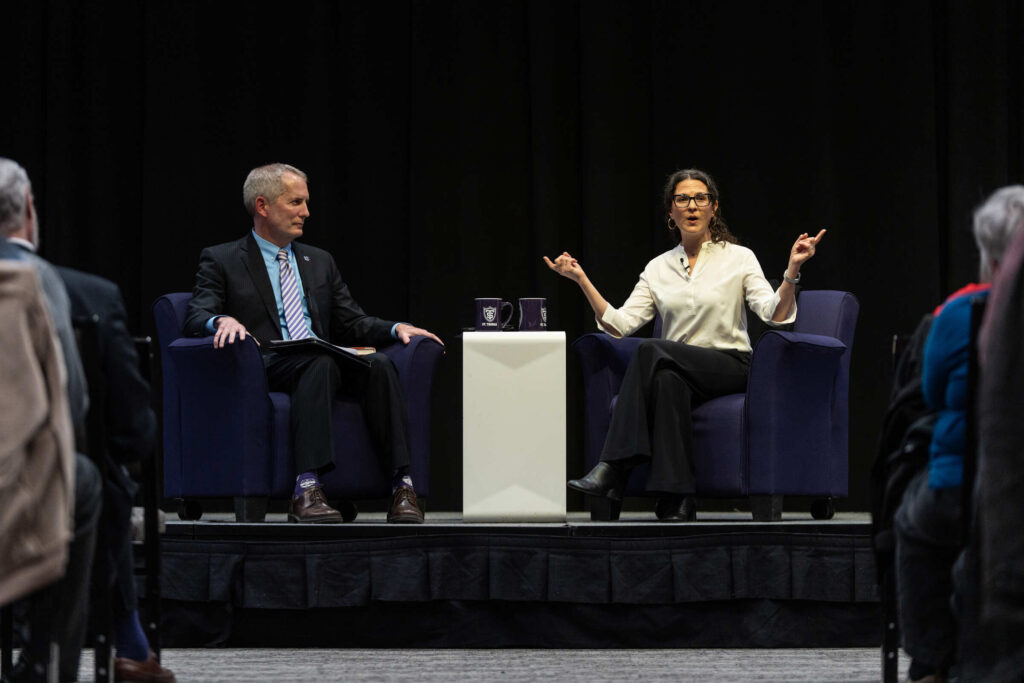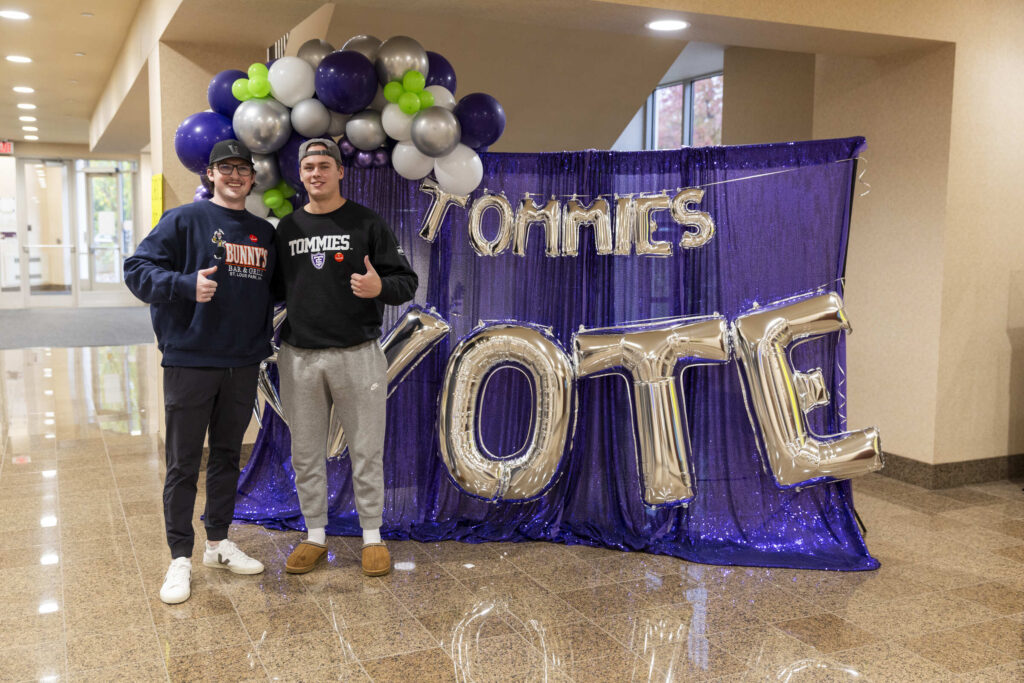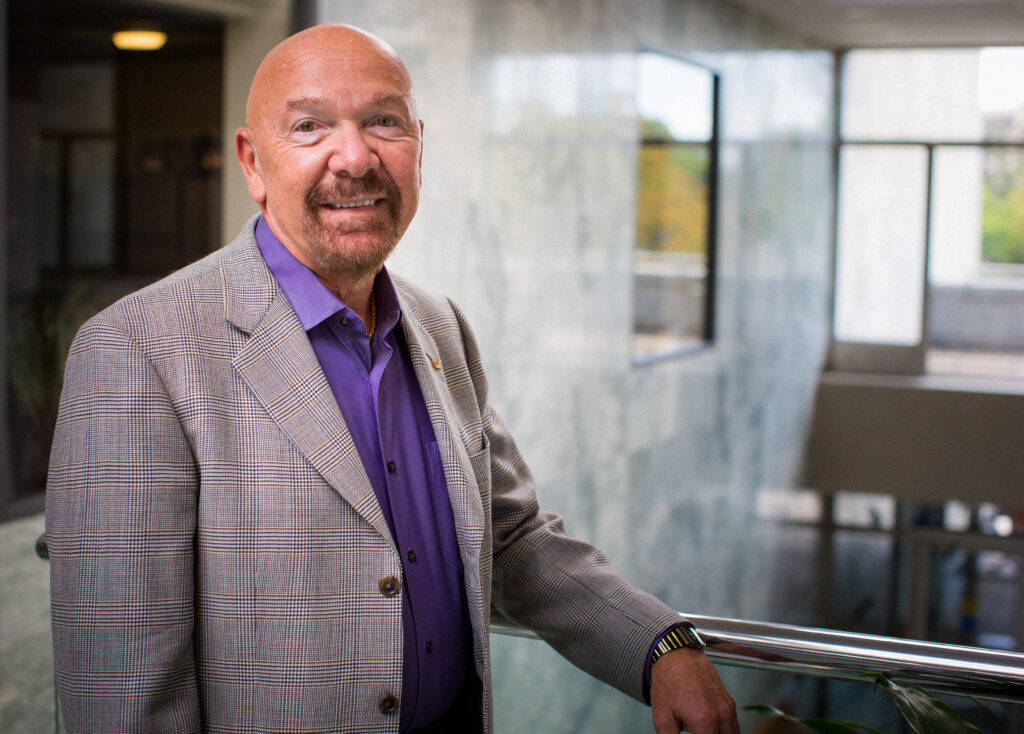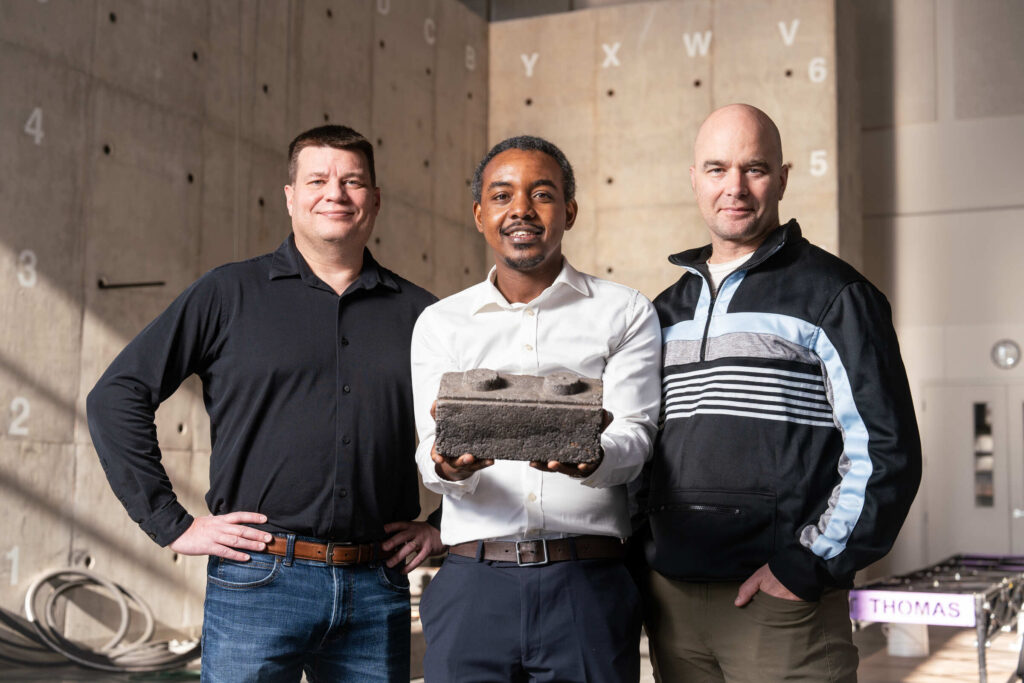Congresswoman Betty McCollum recently visited the University of St. Thomas on Jan. 4 to receive an update on key programs receiving federal funding to improve sustainable energy sources and fill important workforce skills gaps.
McCollum and her team were briefed by School of Engineering Dean Don Weinkauf and leaders of the St. Thomas Center for Microgrid Research, the University of St. Thomas Applied Renewable Technologies (START) Center, and the University of St. Thomas America’s Cutting Edge (ACE) Initiative.
McCollum, who served as the chair of the U.S. House Defense Appropriations Subcommittee from 2021-23 and is now the ranking member, championed these St. Thomas programs and helped secure significant federal funding for them.
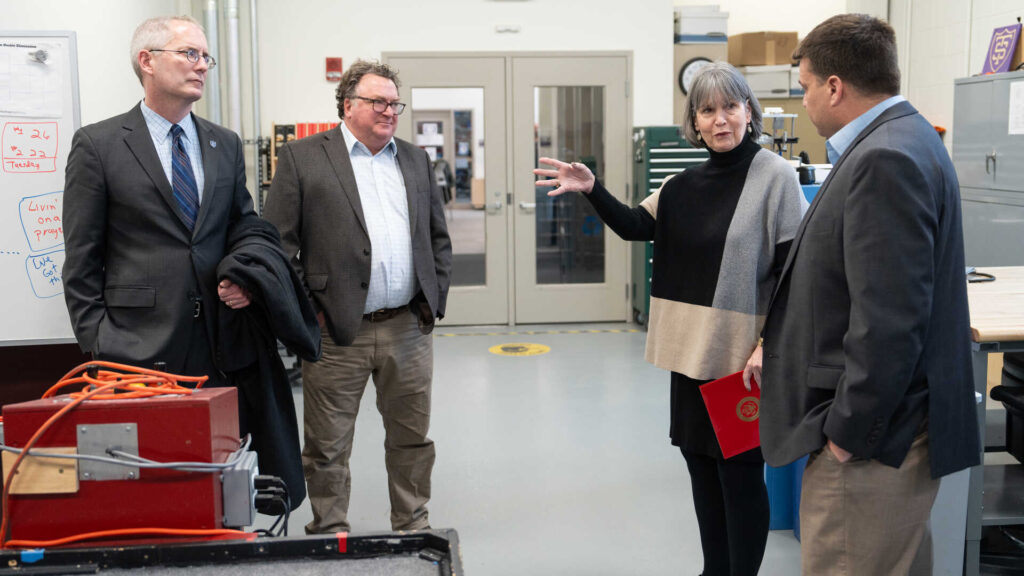
“Dollars that are being invested here at the University of St. Thomas through the Army Corps of Engineers and the Department of Defense are giving our students here in the Twin Cities and St. Thomas a leg up on the jobs of the future,” McCollum said.
Center for Microgrid Research
McCollum helped secure a total of $16.5 million to fund microgrid reliability and resiliency research. The University of St. Thomas’ Center for Microgrid Research is using these federal funds to develop local electric energy systems that can operate with or without the central grid. Localized electricity generation also increases the resiliency and robustness of the nation’s electric grid. Small, self-contained energy networks like this can save lives during power outages and help create a more sustainable future.
St. Thomas Applied Renewable Technologies (START) Center
McCollum also helped secure $15 million in fiscal year ’23 for the St. Thomas Applied Renewable Technologies (START) Center, which will promote the development and use of clean energy technologies to stimulate sustainable economies, resilient energy, and water infrastructure, while decreasing environmental impacts of fossil fuels. These programs help students and our local workforce, while advancing progress toward our nation’s urgent goal of transitioning to a sustainable energy future.
St. Thomas America’s Cutting Edge (ACE) Initiative
Finally, McCollum has also worked to expand the America’s Cutting Edge (ACE) initiative to Minnesota. The University of St. Thomas and St. Cloud State University are now participating in this national effort to train the next generation of advanced manufacturing professionals, while helping to fill a critical industrial workforce skills gap in the U.S.
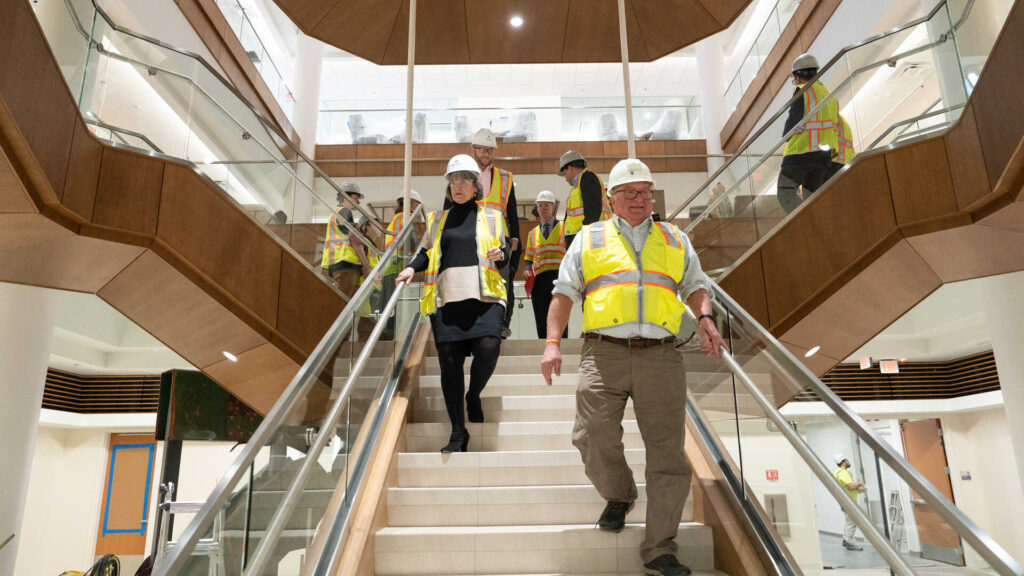
While on campus, McCollum also got a chance to tour the nearly completed Schoenecker Center, a $110 million STEAM complex designed to serve students in science, technology, engineering, arts and mathematics, all under one roof. The five-level building will house three academic areas (Arts, Engineering and Sciences) and everything from engineering high bays and science labs to musical performance spaces and art galleries. The facility is set to welcome students this spring.

